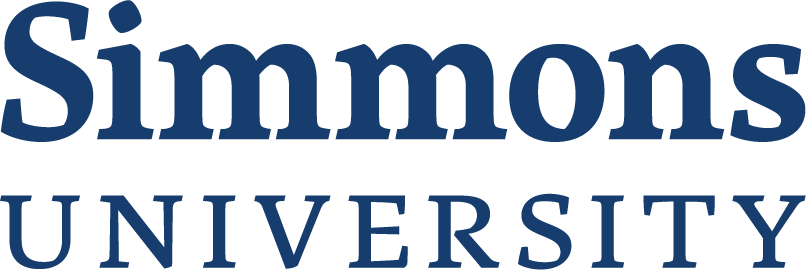SLA Annual Meeting Travel Award
Posted March 18, 2015
The Pharmaceutical & Health Technology Division will award stipends of up to $1,000 for the SLA Annual Meeting in Boston, June 14-16. Part of the award will be paid up front to the selected recipient(s) (see “Procurement of the Award” section below for more detail.)
Entry Requirements:
For consideration of the PHT Travel Award, the applicant must be at least one of the following:
- Students enrolled in a library science program and who express an interest in pursuing a career in corporate librarianship in the Pharmaceutical or Health Technology Industries
- Current professional PHT Division Members who are in need of travel assistance to attend the PHT Spring Meeting
Recipient Requirements:
The recipient is required to be a member of the SLA-PHT Division, attend the Board Meeting (at Spring Meeting) or General Assembly (at Annual), write 300-word accounts of three sessions, and write a 300-word account of his/her experience at the meeting, all for publication in an upcoming SLA PHTD CapLits issue.
Procurement of the Award:
The winner of the Travel Award(s) receives reimbursement for the travel cost prior to the meeting, and the registration/hotel cost after the recipient satisfies the requirements of the award.
Timeline:
- Qualified applicants must submit all requirements by: April 14, 2015
- Notifications for all applicants will be sent by: end of April 24, 2013
Submission Contact:
Please submit your application by April 14, to Rochelle L. Stern, MLIS [email protected]
All PHT Travel Awards are to be coordinated by the Student Relations Chair, and judged by the SLA PHT Board. For any additional questions or comments please contact Rochelle Stern, PHT Student Relations Chair ([email protected]/609-514-8360).
Submission Requirements:
- Be sure to demonstrate creative applications of technology, awareness of available resources, and in-depth analysis of current issues
- List all applicable references, sources, and analytical processes
- Be creative – teach us something we may not know
- Make a scholarly impression – use and list resources and your search criteria or processes to research and write the essay
- Cover Page with Name & Contact Information
- Updated Resume
- Two Paragraphs (3-5 sentences each) on:Why I want to go to the SLA Annual Conference” (Everyone), “Why am I interested in the PHT Division?” (Students only)
- Short Answer Essay (1-2 pages) – Pick one of the topics (see Short Answer Essay Topics) OR submit a similar piece of scholarly work
Short Answer Essay Topics (select one):
Future Forecasting
- Describe a future vision for corporate information profession. What are the three core competencies for today’s pharmaceutical/medical information professional in order to be future ready? What three things should professional associations be doing to promote the need for corporate medical information professionals?
- There has been much discussion on whether the word, “librarian” is a misnomer, given that librarians are doing, and will be performing, functions beyond the ones of the traditional librarian. Describe, contrast, and explain why, whether, and/or when a current real-life pharmaceutical/health/medical library should refer to the word “library” or “librarian.”
- Given the current economic environment, discuss the value of transferrable special library skills to positions that do not conform to the current pharmaceutical/medical librarian, i.e., researcher, knowledge manager, digital tools trainer, data scientist, etc. Provide real job postings and/or real-life situations of transference of library skills to other job titles.
Arguing the Value of Current and Future Librarianship
- Situation: You have encountered a conversation around the common corporate meeting area that proclaims information on the Internet alone provides all sufficient information on the latest research on Alzheimer’s drug therapy. As an information professional, you have an obligation to defend the competencies of the librarian, along with professional resources. Develop a convincing, but diplomatic, argument defending the thesis that the Internet alone is not enough, and would garner support for value-added corporate librarian services.
- Thesis: Information technology such as streaming and downloadable audio, video, and digital booktechnology, will displace the librarian. Defend this thesis and develop solutions or approaches for information professionals to work with these resources in order to complement the value of emerging technologies.
Technology
- With the vast numbers of online health consumer information, the barrier of waiting for health information from a doctor has reduced; however, access to inaccurate, outdated, and irresponsible health information has increased. Research an instance where a health consumer(s) or a health professional(s) experienced this situation. Define how an informational professional would be able to intervene, and what kinds of programs and/or resources could be developed to impart credible health information to consumers, or to consumers via health professionals.
- Many corporations are encouraging employee use of hand-held devices to retrieve information. Discuss how the corporate libraries can help support these mobile devices, and any issues involved.
Business of Health/Medical Libraries
- What is the pathway for entry into the medical information profession? Interview PHT members or summarize sufficient attributes of three or more pharmaceutical/medical/health librarians. Make conclusions as to what strategies may work best with regard to securing a position in the corporate medical world.
- Research life science corporations with medical information job postings in the past 2 years. What are the core competencies wanted for entry level / mid-level / veteran-level positions? What are the implications for information professionals in each of these three levels?
- Summarize library literature on success in the corporate library. How has it changed in the last twenty years? What are the keys to success today?
